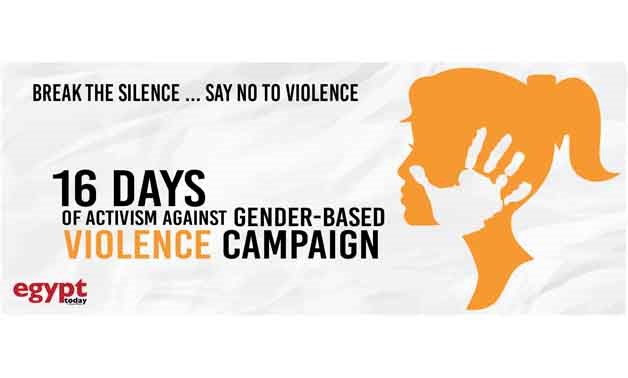
Designed By Egypt Today - Mareez Girgis
CAIRO – 25 November 2017: “I’m Sorry. I’ll never do it again. I swear,” she frantically repeated as she backed into the kitchen corner, hands held up to protect her face.
“I’ll make sure you never do!”
The next day, Mona goes to work sporting a black eye, the makeup barely conceals it. No one at work asked her about it, they already knew. They whispered, they murmured and they gossiped, yet no one reached out to her. “It’s none of our business,” they said to themselves. “It’s a family dispute between a man and his wife.”
What went on between Mona and her husband is a common case of spousal domestic violence. According to 2017 statistics by the World Health Organization (WHO), about 1 in 3 (35 percent) of women worldwide have experienced either physical and/or sexual intimate partner violence or non-partner sexual violence in their lifetime. Egypt Demographic and Health Survey 2014, conducted by the Ministry of Health and Population, revealed that 30 percent of Egyptian women are subject to domestic violence.
One would immediately wonder why a woman would stay in a relationship with someone who has done nothing but harm her, physically, verbally or mentally.
The answer is simple yet very sad...
Social norms in many communities force women to accept whatever their husbands say or do, without the right to object. They would also be frankly told that living with an abusive husband is better than being divorced. I mean, haven’t you heard the rumors about Sanaa? Eman? Hanan? You wouldn’t want to become the topic of gossip too, would you?
Other women are tied down by much more than these social constraints, carrying the responsibility of at least one kid, whose future may be threatened if divorce takes place – or so the mother believes. They might be distressed and worried about their inability to support their children on their own… but are they really helping the kids by raising them in such an “abusive” environment?
Thirty-two-year-old Nour, a domestic violence survivor who refused to use her real name, has been divorced for nearly six months, after enduring emotional, and sometimes physical, abuse for five years – the whole duration of her marriage.
“He didn’t seem like the kind of guy who’d hurt you; he had always treated me well and I never expected that he’d turn out this way,” Nour explains. “It started with little silly things. He’d get inexplicably mad over the tiniest thing… but he always apologized afterwards. He’d be so sincere and I’d believe him.”
Seeking her mother’s support as her husband started threatening to hit her, Nour was shocked to hear from her mom that it was “normal”. She said, “I should try to please him instead of angering him. I went back; he apologized like he always did and we lived in peace for a while,” Nour recalls.
As she got pregnant with her son, she was promised a new start and she “naively” believed him.
“Then it started all over again after Ziad’s first birthday,” Nour says. “The curses, the kicks and the blows, and the humiliation that followed, were taking over my life; that’s when I decided I should do something. Despite his and my mother’s countless attempts to reconcile us, I decided to file for divorce.”
Although she suffered a lot, Nour is actually an example of a success story. She managed to rise up and bring herself some justice, and so should every woman around the globe.
If you are facing any kind of domestic abuse, don’t be afraid to turn your abuser in. Call the police to report the incident.
Most of all, if you know someone who faces such brutality and is afraid to reach out for help, offer yours.
To report domestic violence, call these numbers: 01126977333, 01126977222 or 01126977444.
All women’s names were changed to protect their privacy.
This article is a contribution by Salma Hamed from the Women of Egypt online platform, which aims to empower Egyptian women by brining into focus their issues and reviving the memory of the Egyptian suffragette movement.
It is part of Egypt Today's campaign “Break the Silence ... Say No to Violence” marking the 16-Day campaign of activism against gender-based violence GBV from November 25 to December 10.

Comments
Leave a Comment